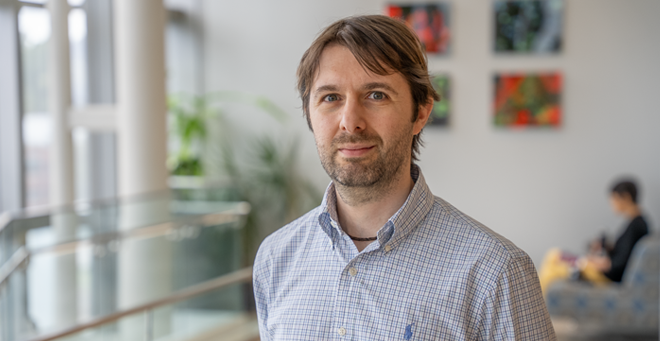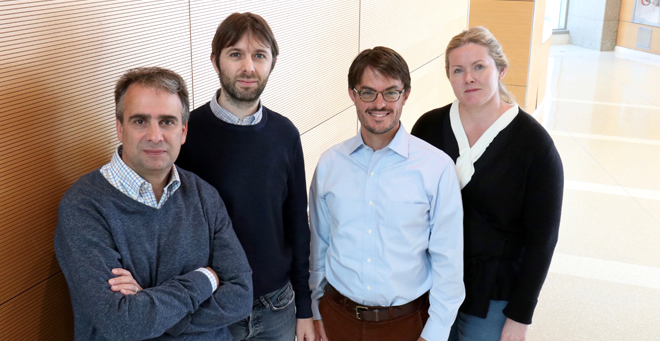
Andrea Reboldi, PhD, associate professor of pathology, is one of eight recipients of the Investigators in the Pathogenesis of Infectious Disease, or PATH, award from the Burroughs Wellcome Fund, a private foundation dedicated to advancing biomedical science by supporting research and education in the United States.
“It’s an extreme honor to be part of a community of scientists working on a similar problem, investigating the pathogenesis of infectious disease. It’s going to be very good to have this community to interact with. Having access to this sort of expertise will be critical to moving our research forward,” Dr. Reboldi said.
“This isn’t something I’ve accomplished single-handedly. It’s in large part thanks to the people working in my laboratory and my colleagues in the Department of Pathology. We think of it as an individual award, but at the end of the day, it’s really recognizing the community at large who put me in this position,” he added.
The PATH award includes $500,000 over five years. Recipients of the award are selected following a highly competitive process. The award recognizes exceptional researchers who have demonstrated outstanding potential in unraveling the complex mechanisms and causes of infectious diseases. The grant will support Reboldi’s research on the regulation of intestinal humoral immunity by cholesterol metabolites.
“Epidemiological data shows that a diet rich in animal fat can promote certain inflammation in the human body, especially at the mucocutaneous barriers,” Reboldi said. “The Burroughs Wellcome Fund grant research integrates this idea that cholesterol metabolites being changed in the tissue can regulate the immune system.”
Reboldi and his lab members are researching whether enteric infections can have a direct impact on immune cells at the mucosa via modulation of cholesterol metabolites. The Reboldi lab is using salmonella in mice as an enteric infection model to determine if enteric pathogens can amplify inflammation in the gut by altering the diet-derived byproducts that are sensed by the immune system.
“We know that enteric infection can have a long-lasting impact on the intestine, and it is thought that this phenomenon is due to changes in the composition of the pre-existing commensal bacteria,” Reboldi said. “We are tackling this problem from a different angle and focus instead on the resident immune cells in the gut. We are asking whether the long-term issues driven by enteric infections could be due to the direct effect of the pathogens on the production of cholesterol byproducts, and, in turn, on the immune response at the barrier.”
Reboldi has been at UMass Chan since 2016. He graduated from the University of Padova in Italy with a bachelor’s in biotechnology and a master’s in immunological biotechnology. He earned his PhD in molecular medicine at the Institute for Research in Biomedicine in Bellinzona, Switzerland, and did postdoctoral work at the University of California San Francisco.
The Burroughs Wellcome Fund is a leading philanthropic organization based in North Carolina. Established in 1955, the fund is committed to fostering innovation and addressing critical challenges in health and science through strategic investments and partnerships.

